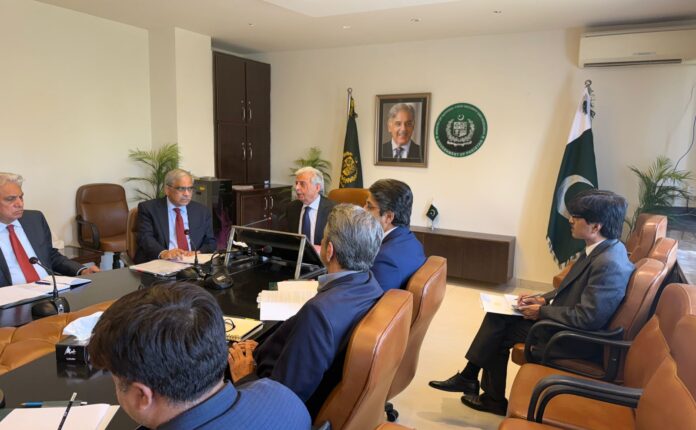In light of the growing significance of mobile devices in our everyday lives, Telenor Asia’s ‘Digital Lives Decoded’ study, conducted in its second year, identified the primary factors that influence mobile use: creating positive social connections, creating new opportunities, providing a safer online experience, acquiring and developing new skills, and lessening our environmental impact.
In 2022, when Pakistan was recuperating from a global epidemic, the first Digital Lives Decoded study was completed, and digital use increased. Building on the foundation laid by its predecessor, Digital Lives Decoded 2023 offers a thorough investigation of mobile usage and how it influences key parts of daily life. The report provides critical insights into the dynamics of digital living in the region, based on data from over 8,000 mobile users in Bangladesh, Indonesia, Malaysia, Pakistan, the Philippines, Singapore, Thailand, and Vietnam.
The findings of this year’s survey build on prior trends, demonstrating that the use of mobile phones will only grow and motivate people to seek out new chances to enhance their careers, learn new skills, and generate revenue that are only achievable with mobile connectivity. This year’s most remarkable revelation was the widespread use of mobile devices as a tool for managing rising living expenses in the face of a challenging economy and high inflation rates. Consumers are using their mobile devices to access a variety of budgeting and financial management tools, calculators, and programs that can help them manage their finances during difficult times. Of these, 70% of consumers use them to compare prices and 65% to find the best deal.
Trends indicate that mobile device use in Pakistan will increase significantly over the next one to two years (37% vs. 28% regionally). Respondents are more likely than their regional counterparts to use their device on a daily basis for healthcare (27% vs. 14% regionally), educational content (68% vs. 27% regionally), and food and grocery delivery apps (30% vs. 16% regionally).
Although Pakistanis believe mobile devices have significantly increased their productivity and work quality, concerns about abuse, security, privacy, and digital literacy persist. Pakistan has the highest percentage of mobile users who believe they are overusing their devices (27%), out of all the markets surveyed. Furthermore, while Pakistanis are more likely to use social networking sites like X (formerly Twitter) to get news, they are also the most likely to report daily encounters with fake news (39% versus 21% in the region). Even while 51% of respondents are confident in their digital skills, they are concerned about their ability to keep up with future technology improvements, emphasizing the importance of continual digital upskilling.
“As Pakistan emerges from the challenges of the global pandemic, the latest Telenor Asia Digital Lives Decoded study reveals a profound shift in the role of mobile technology in people’s lives,” said Khurram Ashfaque, CEO of Telenor Pakistan. The research suggests a positive trajectory as we navigate this digital landscape: mobile usage is gradually altering work dynamics and increasing skill acquisition, opening the door for large-scale economic growth. These remarks underscore the importance of stakeholders capitalizing on the current momentum. We can work together to steer Pakistan toward a more secure and inclusive digital future by developing a strong connectivity infrastructure, using cutting-edge technologies, and enhancing digital literacy.
Building Healthy Social Connections Online
Many people still place a high value on developing positive online social relationships. In Pakistan, 95% of poll respondents said that using mobile devices improved their connections, with significant gains in friendships and family bonds. In Pakistan, the ratio of internet users has risen from 8% to 21%. Mobile technology is critical for fostering connections, empowering individuals, and facilitating personal development. Notably, when it comes to purchasing, utilizing search engines, and messaging—among other internet activities—Pakistani mobile users feel more empowered.
Unlocking New Opportunities at Work
A prevalent tendency caused by mobile technology is the creation of new opportunities at work; 83% of respondents reported increased productivity over the preceding five years, and 87% reported improved job quality and performance. The enormous promise of mobile connectivity is supported by the fact that nearly half of respondents from throughout the area said that owning a mobile device would help them develop in their careers (45%) or excel at work (42%). Pakistanis differ from their regional counterparts in that 47% report major improvements in performance and quality over the last 1-5 years, while 44% report notable career growth and skill development. This demonstrates how mobile devices have a transformative impact in the workplace.
A Safer Online Experience
Concerns regarding security and privacy are increasing with the use of mobile devices, particularly in light of new technologies such as generative artificial intelligence. The study clarifies these concerns, revealing that 57% of participants underlined the importance of privacy and security issues when using mobile devices. Surprisingly, 9 out of 10 respondents indicated concern about security and privacy, with 44% stating they were very concerned. Pakistanis are confident in their digital abilities, but they are also concerned about potential security breaches and future technological advancements. Nonetheless, forecasts for 2022 show that 32% of respondents said privacy and security concerns have no influence on their use of mobile devices for work.
Tapping into Learning and Personal Growth
The findings of the 2023 Digital Lives Decoded Study reveal that mobile usage remains a driver of revenue generation and skill development. 56% of respondents in the area claimed they can learn new skills on their mobile devices, and 87% had used their phones to gain new skills in the previous year, with Indonesia leading the way in this trend. The daily rate of access to educational material via mobile devices in Pakistan is significantly higher than the regional average (68%). This tendency also applies to the learning of new and emerging skills, including social media management (58%), e-commerce sales (52%), and language and communication ability (65%). Surprisingly, 75% of Pakistanis expect to use their newly gained skills to produce additional cash.
Reducing Our Impact on the Planet
The study’s findings indicate that mobile technology continues to have a significant impact on promoting sustainability and wellbeing. 72% of poll respondents agree that utilizing a mobile device has environmental benefits, such as reducing paper waste and improving access to educational information and resources. With 93% of respondents acknowledging the benefits of mobile devices for sustainability, this viewpoint is particularly prevalent in Pakistan. Surprisingly, 29 percent of Pakistanis use mental or spiritual health applications on a daily basis, compared to 18% of people in the area. These data demonstrate the importance of mobile technology in encouraging environmentally responsible behavior and increasing people’s overall quality of life.







